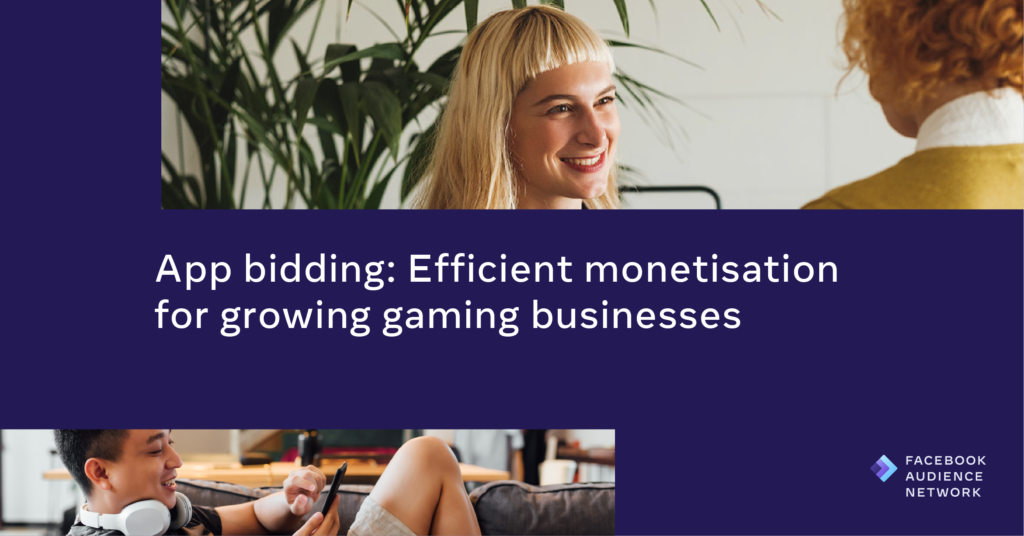
By Neil Eoin Doyle, Strategic Partner Manager at Facebook Audience Network
For the past few years, we’ve been observing how the shift from waterfall to bidding has impacted our clients’ businesses; yielding a reduction in time, complexity, and cost associated with waterfall management.
Recently our Strategic Partner Manager Neil Eoin Doyle, sat down with Herdjie Zhou, CEO, and co-founder, Lucky Kat to better understand how this Holland-based publisher adopted in-app bidding as a logical step on their growth journey. Known for creating pop-culture inspired mobile games, some of Lucky Kat’s hits have included Nom Cat, Road Crash, Nom Plant and Save the Date.
Q (Facebook): Tell us about your company. How has it evolved and grown through the years?
A: Lucky Kat started in 2015 after a life-changing event: At age 29, I experienced a cardiac arrest, and soon after, my brother Hernan and I decided to fulfill our dream of beginning a game studio together. Our first game–Nom Cat–launched within three months of development and reached over two million downloads in its first week.
Since then, we’ve grown to a team of 12, and in 2020, our studio hit over 40 million downloads.
Q (Facebook): How have you been monetizing your games? Any key challenges you’ve struggled with?
A: We’ve always used ads to monetize our games; rewarded videos, interstitials, and banners. In particular, rewarded video ads have been an integral part of our game design for our earlier games. More recently, we’ve been using more interstitials and banners.
One of the challenges we’ve faced has been measuring the whole user journey from acquisition to monetization. Our learning curve has been steep, as we were new to the mobile games industry. We had to execute fast so that we could learn as much as possible in a short amount of time. Fortunately, this has been successful.
Q (Facebook): What piqued your curiosity in bidding? How did you get started?
A: We heard that bidding had the potential to increase ARPDAU and that it could save a lot of time. We had spent a lot of time optimizing our monetization, so we decided to try it out.
First, we tested bidding on Nom Plant and Road Crash with both rewarded video and interstitial on both iOS and Android. After seeing good results on those games, we expanded it to almost all of our games. The onboarding process was easy–and it only took a few days to see the data and the results.
Q (Facebook): Did you run any tests to measure the impact of bidding?
A: Yes, we A/B tested Facebook bidding vs the traditional waterfall for a week, and our ARPDAU increased. Bidding will always reduce latency, and with Facebook Audience Network, it also delivered higher average eCPMs, improving our waterfall in the long run. Now, it accounts for up to one-third of our impressions.

Q (Facebook): How did you integrate bidding? Through in-house or partner mediation?
A: We’ve tried Facebook Audience Network bidding with different mediation partners, and regardless of the partner, the results have always been positive. We now start our new games off with Facebook Audience Network bidding.
Q (Facebook): How did bidding help overcome the monetization challenges you were facing?
A: As our portfolio of apps has grown, it has meant that our waterfalls required more time-consuming maintenance. In-app bidding helped reduce manual work and gave us more time to focus on analysis. It also keeps our ARPDAU stable, lowers our latency, and overall increases the performance of Facebook as a monetization network.
Q (Facebook): Any best practices or tips to share with other growing publishers who want to get started on bidding?
A: First, A/B test your current waterfall set-up against another set-up that includes bidding. Ask your mediation provider if this is possible. As you have less control over eCPMs, look mainly at the ARPDAU as a KPI to measure the impact.
Q (Facebook): Why did you choose to work with Facebook Audience Network to integrate bidding?
A: Audience Network has always been one of our best-performing networks across our portfolio. When we saw an opportunity to increase efficiency and performance, we knew this was something we had to test.
Q (Facebook): What do you think will be the most transformational and impactful trends and opportunities publishers and the gaming ecosystem will experience over the next few years?
A: We believe that automation and efficiency will be taken to the next level, and monetization will be more focused at a product level. At some point, we will all play games that are adapted to our personal preferences and how we interact with it. Gaming genres will evolve to become more hybrid, and users will experience new ways of playing games and interacting with in-game ads or purchases.
To read more publisher success stories like Lucky Kat and additional resources to help you sustainably grow your mobile gaming business, check out our report: The New Era in Ad Monetization: How App Bidding is Transforming Businesses. Or, get started with bidding right away.
 GameDaily.biz © 2026 | All Rights Reserved.
GameDaily.biz © 2026 | All Rights Reserved.